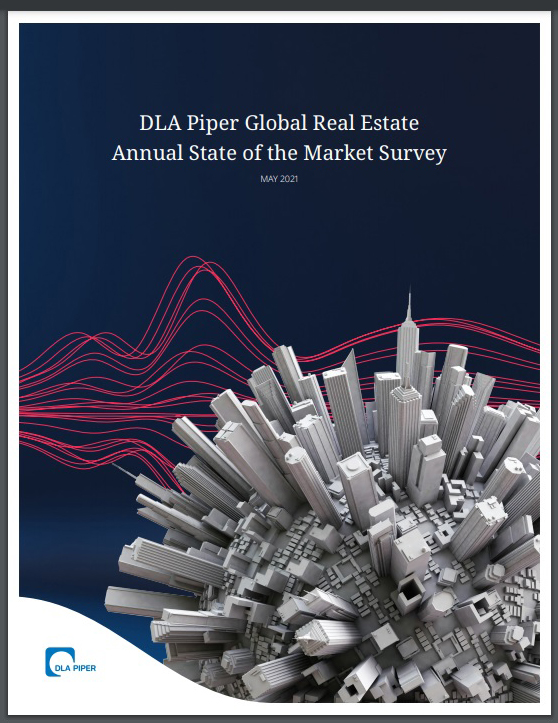
DLA Piper: CRE Executives Becoming Bulls Again

Commercial real estate executives are once again bullish about the U.S. CRE market after an uncertain 2020, DLA Piper’s Global Real Estate Annual State of the Market Survey reported.

The new survey found a “positive shift” in mindset compared to last year’s survey, when most respondents were bearish due to uncertainty created by the COVID-19 pandemic. Most respondents this year–74 percent–said they anticipate a bullish market in the next 12 months, up from just 21 percent a year ago.
“We are excited to see the resiliency of the commercial real estate market and a return to optimism, which we believe is a sign that the market is poised for a strong rebound,” said John Sullivan, U.S. Chair of DLA Piper’s Real Estate practice. “Solid fundamentals, low interest rates and ample debt and equity capital lead us to anticipate a strengthening of most segments of the commercial real estate market over the next year.”
The report attributed this year’s positive outlook to the rollout of COVID-19 vaccines and an “abundance of capital” in the market. Roughly half of respondents said they believe U.S. GDP will return to pre-pandemic levels within 18 months, up nearly 20 percentage points from a year ago. DLA Piper noted this optimism may be a bit understated, as the Commerce Department recently reported that GDP is now within 1 percent of its pre-pandemic peak.
Favored Asset Types
The report said two sectors have offered the most attractive risk-adjusted opportunities in the U.S. for the last several years: logistics/warehousing and life science/biotech. This year, 61 percent of respondents identified logistics/warehousing as the most attractive asset type for investment over the next 12 months while 57 percent mentioned life science/biotech-related real estate.
When asked which factor will have the most effect on commercial real estate, 86 percent of survey respondents chose e-commerce for the second time in a row. “Although the growth in e-commerce was increasing demand for logistics and data center properties before the pandemic, the pandemic supercharged the demand for on-line goods and made those property types even more attractive to investors,” said Sullivan.
Sullivan noted advances in science and “big data” were fueling interest in life science/biotech real estate even before the pandemic, “but the pandemic has shined a bright light on the potential growth of these types of assets,” he said.
The survey also said recovery could be on the horizon for the hotel sector. It reported 22 percent of respondents said they consider the asset class attractive for investment as travel restrictions loosen, a 16 percentage point increase from a year ago.
